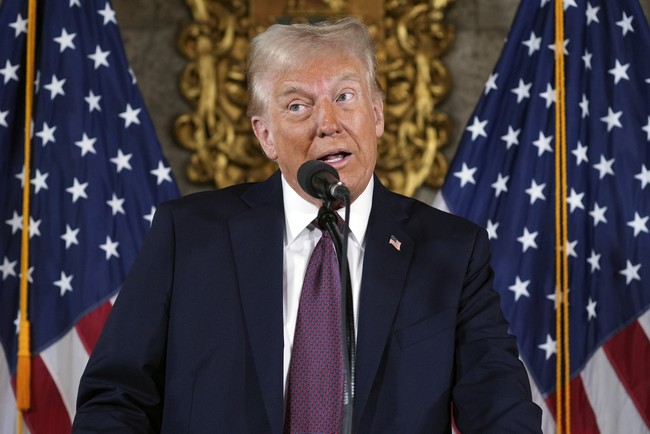
Article 78 didn’t work. Will the Article III option fare any better for Donald Trump?
We’ll see soon enough, it appears. Having had his Article 78 lawsuit tossed out by the appellate court in New York, Trump has now filed an emergency application to the Supreme Court to stop the upcoming sentencing hearing by Judge Juan Merchan:
In a request for emergency relief filed with the Supreme Court, the president-elect asked the justices to temporarily block further criminal proceedings in New York state court, including his upcoming sentencing, before he takes office. Trump was found guilty of 34 felony counts for falsifying business records earlier this summer and is scheduled to be sentenced Friday at 9:30 a.m.
The Article 78 lawsuit was a long shot, for reasons I explained on Monday. This also looks like a long shot, since the Supreme Court does not usually inject itself in state judicial processes, not unless there are serious constitutional questions involved. Trump’s application here may present a potential constitutional issue, but is it pressing enough for federal intervention at this point?
The New York Times reports that the application argues — as did his Article 78 lawsuit — that the election results make Trump immune from further criminal or civil litigation:
The effort hinges on Mr. Trump’s argument that he is entitled to full immunity from prosecution, and even sentencing, now that he is the president-elect. His lawyers have based that claim on a polarizing Supreme Court ruling from last year that granted former presidents broad immunity for their official acts.
“This court should enter an immediate stay of further proceedings in the New York trial court,” the application said, “to prevent grave injustice and harm to the institution of the presidency and the operations of the federal government.”
The immunity finding in Trump v US doesn’t touch on the status of presidents-elect, though. It recognizes the immunity that had been assumed until lately for sitting presidents from civil and criminal litigation over official acts. Presidents-elect can’t conduct official acts until they take the oath of office, nor does the ruling in Trump v US even suggest that the immunity somehow reaches all pending litigation during a time when the president is between terms.
The better argument here would be that Merchan ignored Trump v US and allowed the conviction to stand even though Alvin Bragg and his prosecutors relied on official acts as part of their evidentiary chain. That certainly might get the Supreme Court’s attention, but not normally at this stage of the proceedings. To take that issue to the Supreme Court, Trump would normally have to exhaust his appeals within the New York state judicial system and then ask for a Supreme Court review. To get there, Trump would have to go through his sentencing hearing, which in New York unlocks the appeals process for convicted defendants.
But who knows? The Supreme Court might see this as a corrupt process that deliberately refused to abide by its earlier rulings, and might choose to enjoin it long enough to deny Merchan the sentencing hearing. The court may have hinted at just that:
The Supreme Court directed prosecutors to respond to Mr. Trump’s application by Thursday morning, an indication that the justices may act before the scheduled sentencing on Friday.
This could just be the court trying to demonstrate a dedication to process. They could have simply rejected the application, though, and that wouldn’t have needed much explanation. At least four of the justices want to hear from prosecutors, and that means that the Supreme Court may well decide to take their time deciding in order to render this particular episode of Lawfare & Disorder moot.
In other words … stay tuned!








